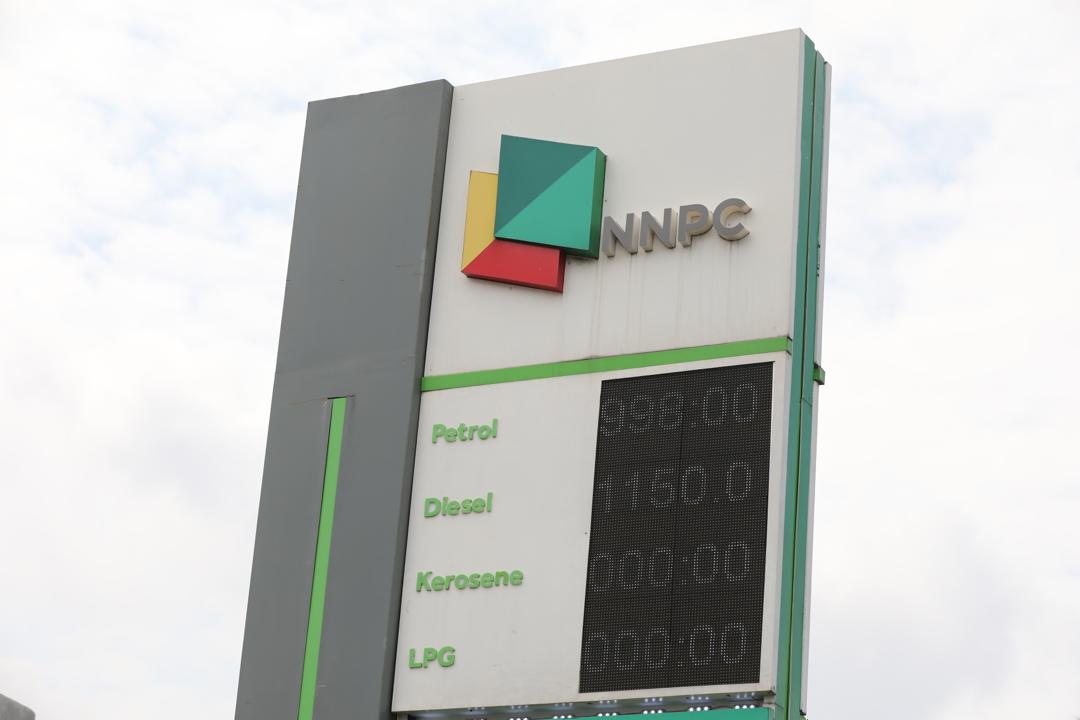Analysts, stakeholders dissect fuel pricing amidst deregulation
Against all expectations of Nigerians for a cheap fuel, the prices of petrol have continued to increase, worsening the hardship of many Nigerians due to fuel price-induced inflation. From N198 on May 29, 2023 when President Bola Tinubu took over to N580 and N855, a litre of petrol now costs over N1000. Following the last […]

fuel 3
Against all expectations of Nigerians for a cheap fuel, the prices of petrol have continued to increase, worsening the hardship of many Nigerians due to fuel price-induced inflation.
From N198 on May 29, 2023 when President Bola Tinubu took over to N580 and N855, a litre of petrol now costs over N1000.
Following the last adjustment done by the Nigerian National Petroleum Company Limited (NNPCL), a major marketer, Adetunji Oyebanji, said the new price adjustment is an indication that the era of full deregulation of PMS is here, saying this is inevitable.
Oyebanji who is the Managing Director of 11 PLC (formerly Mobil Nigeria), said, “I believe the price of PMS has finally been deregulated, and subsidy has finally been eliminated. Henceforth, the price of PMS will be determined by market dynamics.
- W/Bank driving Nigeria’s economy through women empowerment – Edun
- Nigeria joins BRICS as partner country
“This is inevitable as the government could no longer bear the burden of the subsidy. A good measure the government has taken to mitigate the development is the sale of crude oil to local refineries in naira at a fixed exchange rate.
“This will protect consumers from the negative impact of the fluctuations in exchange rates. The fact that the crude will be refined in local refineries will also save the cost of transporting crude to offshore refineries and transporting refined products back to Nigeria. Without these two factors, prices would have been higher.”
Nigerians were optimistic last month when Dangote Refinery rolled out premium motor spirit (PMS) otherwise known as petroleum from its 650,000-barrel plant.
But they were disappointed when the price came out and it was nothing cheaper than the market price sold by the NNPCL and other major marketers.
The NNPC had claimed it bought a litre at N898 from Dangote when it first rolled out the product with the national oil company being the sole off-taker. The N898 then was far higher than the N855 NNPCL was selling in Lagos prior to the last increase.
The implication, according to the analysts, is that the Dangote price cannot be lower than the market price despite local refining and even the implementation of crude sale in naira by the federal government.
“The truth of the matter is that Dangote cannot sell below cost price and at the same time NNPC does not have the money to continue to carry the burden of shortfall or subsidy as the case may be,” a source said.
Is the subsidy gone?
With the current market price, analysts say the cost is now reflective of the market price with subsequent pricing determined by the market forces which implies that the era of subsidy payment might have gone.
At the moment, there are fears that the price may not come down now given the volatility of the exchange rate and the fact that importation has not stopped.
Ayodele Oni, an industry analyst, told our correspondent that efforts must be geared towards ramping up local refining with the inauguration of the Port Harcourt Refinery as promised by the government.
“Crude oil price is already expensive unless the government gives subsidies. Dangote is not going to give subsidies because it is a private business. If crude oil is expensive, the fuel might be expensive in Nigeria as well except the government is also giving Dangote subsidy,” he added.
But there are expectations that fuel prices would stabilise as local production increases and competition between independent marketers grows.
Currently, independent marketers can directly approach Dangote for the product and this, observers say, would drive investment and deepen competition in the market.
“What we are witnessing now is that the federal government has adopted a fully deregulated approach envisaged by the Petroleum Industry Act (PIA), to boost transparency and competition,” another industry player said on the condition of anonymity.
Speaking further, the MD of 11 PLC said, “Another thing will be that the incentive to smuggle petrol from Nigeria to our neighbouring countries will be greatly reduced. Henceforth, prices can change at any time, depending on market dynamics. Customers will make informed choices about where to buy from.”
He advised consumers to consider alternative sources of powering their vehicles like CNG, saying, “The era of full competition has come to Nigeria.
“With time, things will settle down, and people will make informed choices. The government should invest in mass transportation, especially with CNG buses. Greater incentives should be given in terms of duty waivers on conversion kits and other CNG equipment and vehicles.”
The Group Managing Director, Rainoil Ltd, Gabriel Ogbechie, has asked Nigerians to prepare to pay full market prices for petroleum products as a result of the full deregulation of the downstream sector.
He said, “President Tinubu did the right thing by saying the subsidy was gone. He removed the subsidy and then we saw the price of petrol slide upwards.
“At some point, I think the government had to intervene to calm things down and then NNPCL went back to fixing the prices of petroleum products.
“But in October, we saw the government now saying such would not be allowed anymore, directing marketers to source their products and fix prices.
“The key thing is that deregulation is here to stay. Petrol is anything between N1000 and N1060 per litre towards the coast, and maybe N1300 as you go further North,” he added.
